How to Make Baby Food: 12 Ways
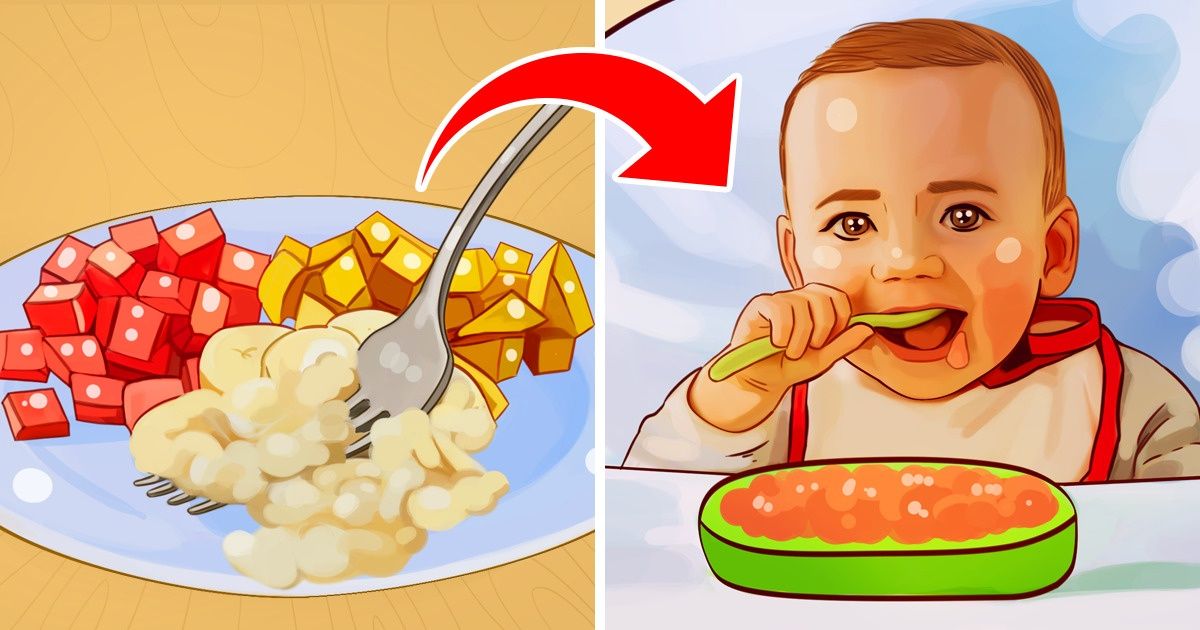
The beginning of feeding babies solid food is a stage that can often cause some parents to feel a little anxious. Many doubts arise about which foods to give to such a young child: in addition to being nutritious, you also want them to eat something tasty that’s easy and cheap to make.
5-Minute Crafts wants to share with you some recipes for baby food that are as quick as they are easy to prepare. Just remember to always ask your pediatrician what is best for your baby.
From 5 or 6 months to 9 months of age

Traditionally, complementary feeding should start when your baby turns 6 months old, although this may depend on what your child’s pediatrician recommends, your culture, or simply whether you feel your baby is ready for it or not. Experts say that you can start this stage by giving your baby different types of foods. However, the most common thing to do is start by feeding babies fruit. First just one type of fruit, pureed, and then you can mix different fruits to provide more nutrients.
1. Oatmeal with banana

2. Apple and pear

Apples and pears are fruits that are pretty much available during any season of the year. Combining them makes a meal that’s rich in pectin, which has a purifying effect.
3. Lentils and carrots

4. Apple, pear, and watermelon
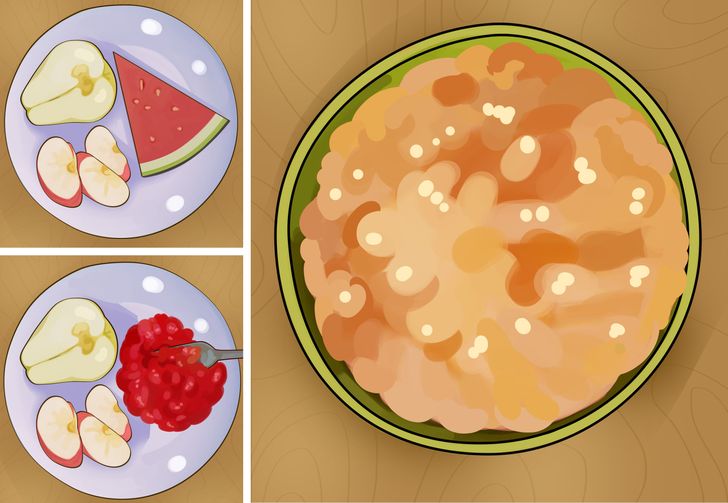
Giving watermelon to your baby is a great idea for when the hot season starts. It provides plenty of water and healthy calories to your baby’s diet. Plus, its sweet taste will make a delicious treat for them.
From 9 months to 12 months of age
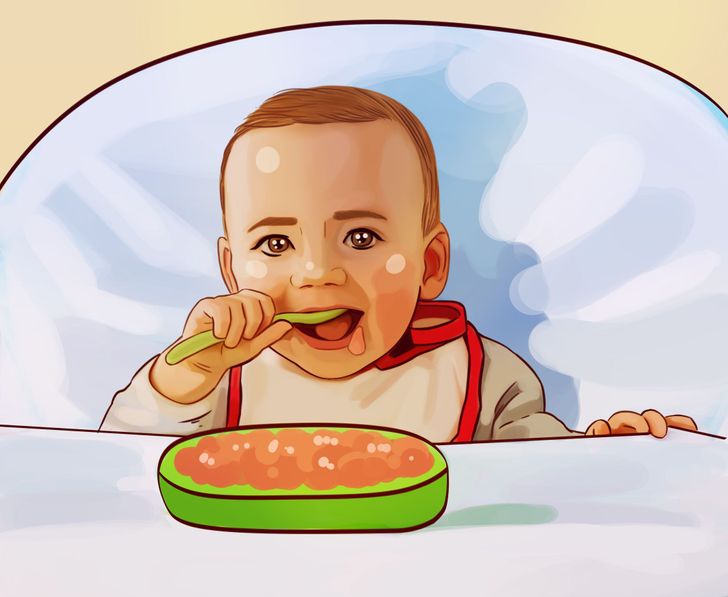
By this time, your baby should have already tried a whole variety of fruits and vegetables. That also means that by now you will know what kinds of foods your baby likes best, while at the same time you’ll have gained more experience in combining different types of fruits and veggies to make healthy purees. Your child may now have more teeth and may have acquired skills in swallowing foods of different textures. You can now introduce some dairy products into their diet, according to your child’s preference and as long as it goes in agreement with your pediatrician’s recommendations.
1. Avocado and zucchini

Avocado can be introduced to your baby at this stage. Babies usually love its velvety and soft texture. It’s rich in vitamin E and has a high omega content. Zucchini, on the other hand, is a good source of fiber and vitamins, and is rich in beta-carotene or vitamin A as well as in vitamin C. Combining these 2 will make for a fun an healthy meal.
2. Watermelon, mango, and banana

Mango is a unique ingredient in that it has a high fiber and vitamin A content. It’s an excellent way of helping your baby develop better eyesight and it promotes healthier skin.
3. Kiwi, melon, and apple
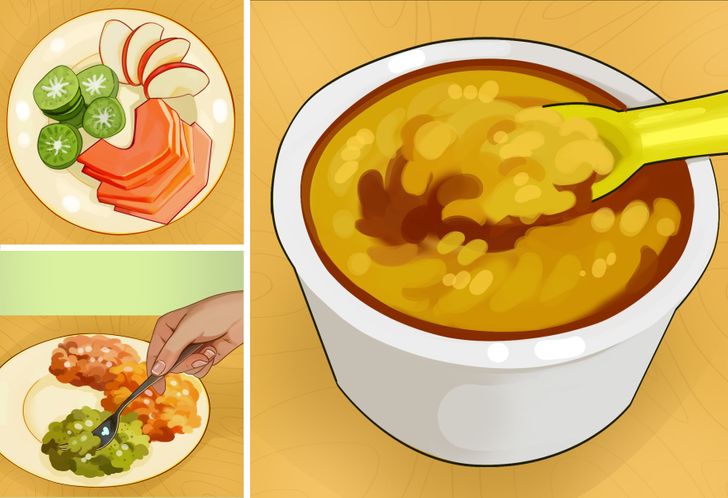
Kiwi and melon are tropical fruits that are very popular with babies and that provide vitamins and minerals, as well as potassium. They can be an exotic addition to your baby’s diet.
4. Mango, apple and orange

Adding citrus fruits to your baby’s diet is a good idea, as most of them provide a great deal of the vitamin C that they need. Citrus also promotes iron absorption which is very important for your baby’s development.
From 12 months of age onward
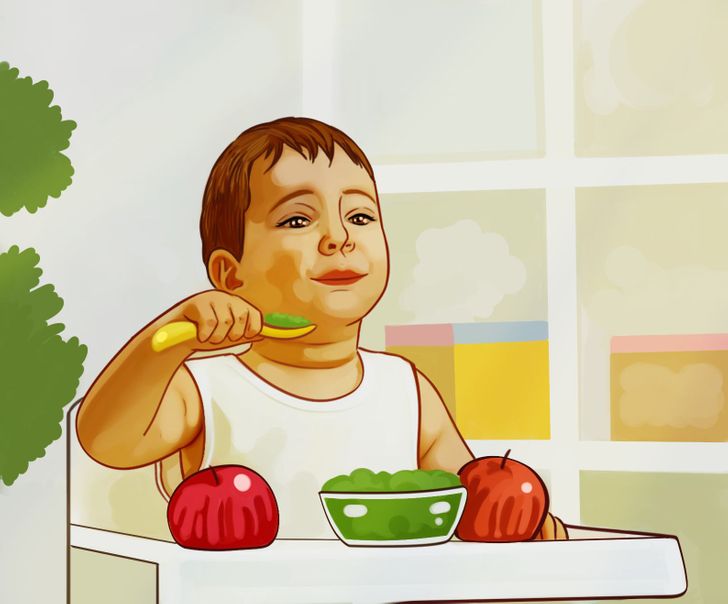
Finally, at this stage there are some pediatricians that say babies are ready to try all kinds of foods. And, in fact, it’s also true that they will now be more selective about the foods you give them. Therefore, it’s recommended to not stop offering them what they do not like so you don’t “spoil” them.
1. Kiwi, strawberry, and banana
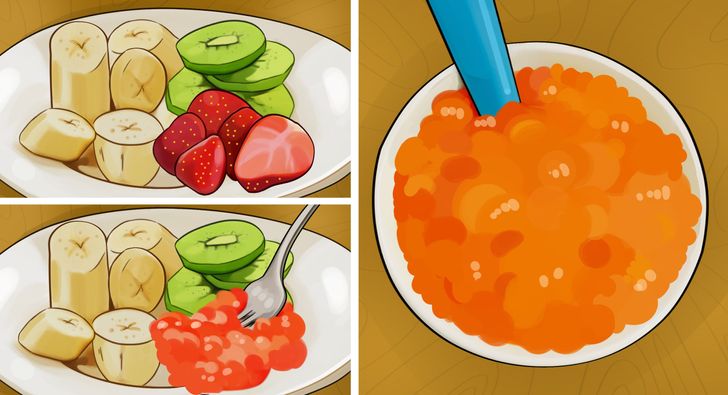
While some pediatricians recommend including strawberry in your baby’s diet before the age of 12 months, it depends, of course, on the baby’s development. However, keep in mind that strawberry is a food that is rich in vitamin C and its taste is something that little ones love.
2. Mango, pear, and strawberry
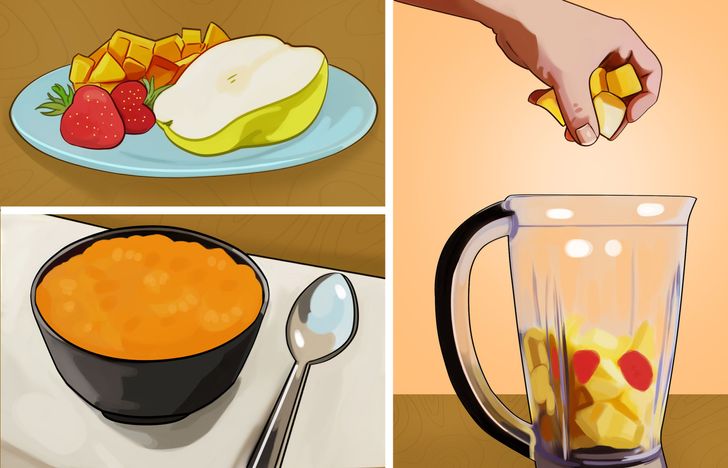
Combining mango, pear, and strawberry to make a lunch puree is a great idea. All these fruits have a high content of vitamin C.
3. Cherry, pear, and banana
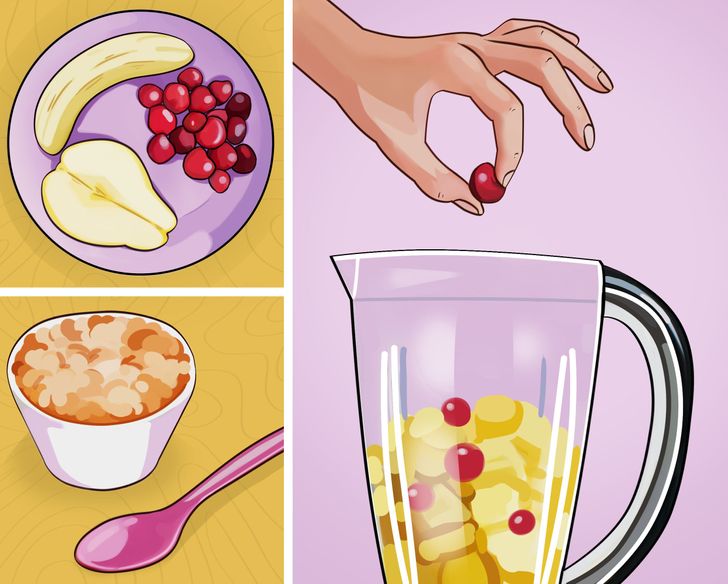
Adding cherries to the baby’s diet is a good idea, as they contain antioxidants, as well as vitamins C and A. They are high in fiber and their sugar is easily digested by babies at this point.
4. Fish and broccoli
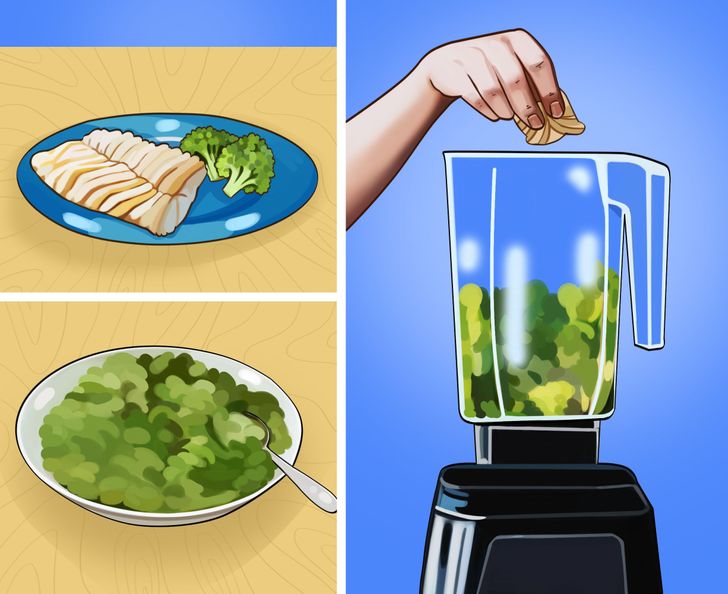
Fish is a food that contains a lot of high-quality proteins, vitamins, and minerals. The best type of fish for your baby at this time is white fish, due to its low fat content. According to the UK’s National Health System, babies can start eating fish from the age of 6 months, always in small amounts, to see if they have any allergic reaction. In any case, you should always avoid feeding your baby shark, swordfish, and marlin due to its high mercury content. Broccoli, on the other hand, provides vitamin C, vitamin B2, vitamin A, and vitamin E.